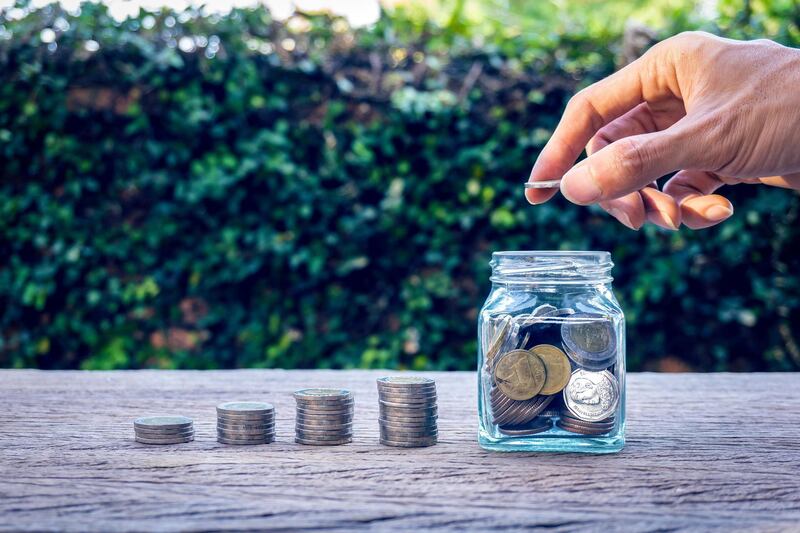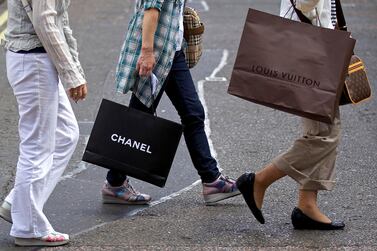Our habits are largely a product of our environment. In the 1970s, Canadian psychologist Bruce Alexander conducted his famous Rat Park experiments, which turned the world of addiction on its head. He showed that, unlike previously thought, rats (and humans) only become addicted to destructive habits when their lives are devoid of entertainment and connection, and that addiction was a product of a boring, lonely life.
The environment controls our actions. We see evidence of this in our own saturated environments. According to the American Paediatric Association, childhood obesity has tripled in the past 25 years. One of the main reasons for this is the precipitous rise in fast-food advertisements.
But our environment doesn’t have to harm us. In fact, it can also be arranged in ways to help us, even if it doesn’t seem so at the time. In my home country, the United States, during the most restrictive Covid-19 lockdown, the average savings rate jumped from a measly 4 per cent to a staggering 30 per cent. It makes sense because the world was unable to purchase as much stuff as before, and we didn’t need a lot either when we couldn’t leave our homes. Where we are, physically and digitally, allows us access to certain behaviours, and discourages other behaviours.
The environment can control our behaviour to devastating effect. For instance, 60 per cent of people are overweight or obese in America and this number is rising. Or, even before Covid-19, most Americans couldn’t cover a surprise $400 (Dh1,469) bill.
Anxiety and depression in college age students in the US have doubled in the past eight years, largely from a world saturated with social media, according to a study conducted by psychology professor Jean Twenge at San Diego State University. Their environment is overwhelming their ability to be healthy –physically, mentally and financially.
But we can fight back. Once we understand the importance of environment, we can start to exert control on the world we live in to help fight against harmful actions and promote positive ones.
It’s a three-step process. Determine your values. What do you care about? Look at your environment and see what factors are harming your ability to promote your values and which ones are helping. Start with your top three harmful actions that are promoted by your environment and what factors are influencing those actions. Then focus on the top three actions you want to do to help your values, and which environmental factors are already doing that but could be increased.
I know this works because I’ve done it on multiple occasions. When I moved to Dubai, I was influenced by advertisements on TV and social media, and I saw a lot of people with fancy cars and clothes around me. I had no idea where my money was going, but I knew I was spending a lot of it. So, I started minimising my contact with advertisements by installing an ad blocker on my computer and not watching TV channels with ads.
I started reading more books and getting ad-free apps. I learned about the costs associated with luxury goods, and learned the limited utility of fancy things.
I started tracking my spending and made a budget based on that information and my values. I stopped going to brunches regularly. I moved to a smaller apartment closer to work. I took on more responsibility at work to get raises and learned skills that gave me valuable side hustles. I’ve doubled my savings rate since that first year in Dubai, and during the stay-at-home restrictions, it tripled, as the environment again severely restricted my spending opportunities.
Another way this process has helped me is in my weight and health. For years, I always kept my house loaded with junk food and drinks. I was constantly exposed to thousands of ads for fast food, especially on the radio. When I got serious about my health after a childhood friend died of a heart attack at age 35, the first thing I did was give or throw away all the junk food and unhealthy drinks in my apartment, so that the things at hand were healthy, low calorie and not processed foods.
I stopped listening to the radio and just listened to music through my phone or podcasts, and hit the fast-forward button during ads. I learned about the many damaging effects of fast food on your physical and mental health. I lost 25 kilograms in six months and have kept it off.
But this is not a “once and done” process. Our environment and bad habits are insidious, and they can creep back in without us really being aware. Try to do this process at least once a year. Re-examine your environment, look for ways to eliminate the negative influences in it and promote the good ones – and most importantly –take action. Stay educated and keep working towards living a life in line with your values.
Dubai schoolteacher Zach Holz (@HappiestTeach) documents his journey towards financial independence on his personal finance blog The Happiest Teacher







